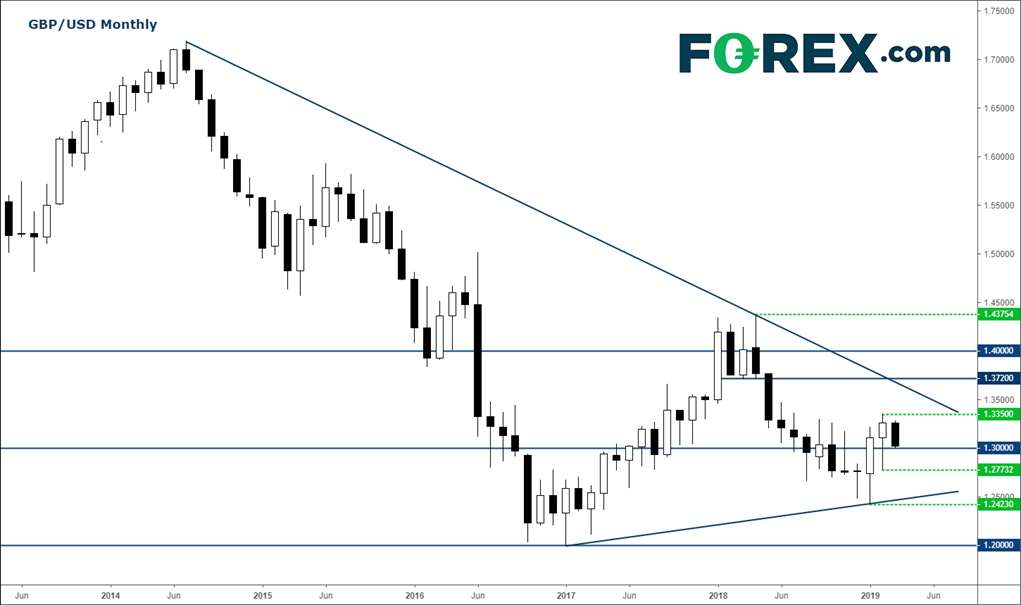Markets will focus on the next Brexit vote next week, reports Fawad Razaqzada, Market Analyst, Forex.com.
Renewed demand concerns weighed heavily on equities and, to a lesser degree, crude oil prices, while the euro and Canadian dollars nosedived in what has been a very volatile week, as investors responded to generally disappointing macro data and dovish assessments of the global economy by major central banks. The Dollar Index touched its 2018 high as the ECB shot down the euro and the Bank of Canada triggered a sell-off in Canadian dollar, while the pound continued to trade lower ahead of next week’s second Brexit “meaningful vote” in UK parliament. On Friday, though, the dollar eased back against some of her major rivals after the latest U.S. jobs report revealed a headline employment figure that was much lower than expected, though the downside was limited wages rose at a faster clip.
Look ahead: Brexit vote, Chinese data and BOJ
Next week promises to be slightly quieter in terms of major data releases, but given this week’s big moves in the markets, expect to see some aftershocks here and there. That being said, Brexit is likely to dominate the agenda again, so the British pound could prove to be quite volatile, providing plenty of tradable opportunities.
Theresa May said she has put forward serious proposals to resolve the deadlock over the Irish backstop, but on Friday afternoon it was not clear whether any real progress was made by Britain and the European Union in reaching an accord on how the former can exit as painlessly as possible. Members of Parliament will vote for a second time on the withdrawal deal the UK Prime Minister has negotiated with the EU on Tuesday. If Parliament reject the deal again, then the next step would be to either leave the bloc without a deal or delay the exit date. The real question is, will we be any clearer about the direction Brexit is heading by next week with time fast running out?
Before we look at next week’s data highlights, below, please note that China’s CPI is due for publication on Saturday, the same day when the Federal Reserve Chairman Jerome Powell is due to speak about monetary policy normalization in California. So, there is potential for the markets to gap at the Asian open on Sunday night. Also, Sunday will see North America shift to summer time, which means that London will only be four hours behind New York for the next three weeks.
Monday, March 11
- German industrial production
- US retail sales for Jan.
- US Business Inventories for Dec.
Tuesday, March 12
- UK GDP, manufacturing production and
- UK parliamentary vote on Brexit
- US Consumer Price Index (CPI) for Feb.
Wednesday, March 13
- UK budget
- US Producer Price Index (PPI) for Feb.
- US durable goods orders for Jan.
- US Construction spending
Thursday, March 14
- China industrial production
- US Retail sales for Feb.
- US New home sales for Jan.
- US Business Inventories for Jan.
Friday, March 15
- Bank of Japan policy decision
- US Industrial Production for Feb.
- US Capacity Utilization for Feb.
- Canadian manufacturing sales
- US University of Michigan consumer sentiment
Overall, next week’s data releases are not significantly important in the grand scheme of things, but we will still have a handful of potentially market-moving numbers to look forward to. It is also difficult to see how the Bank of Japan (Friday) will get any more dovish but will do its best to keep the yen under pressure given the recent moves by other major central banks. Perhaps the biggest fundamental event next week is the next “meaningful vote” in UK parliament. So, the pound, at least, should move sharply.

Source: TradingView and FOREX.com.










